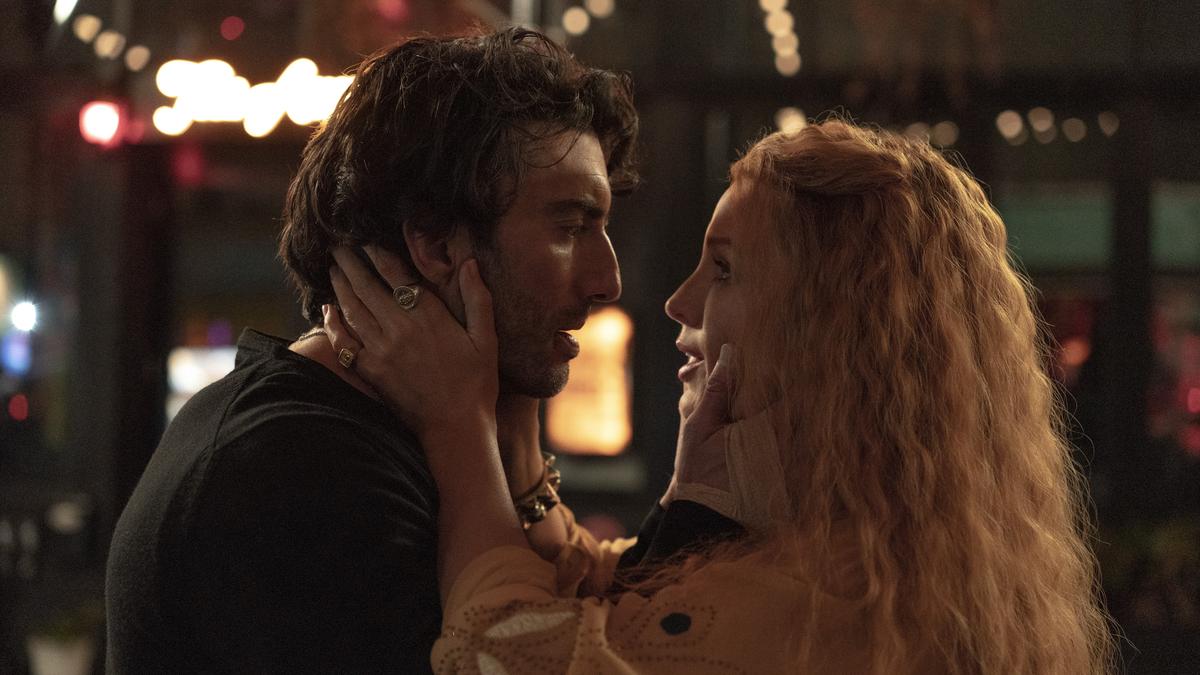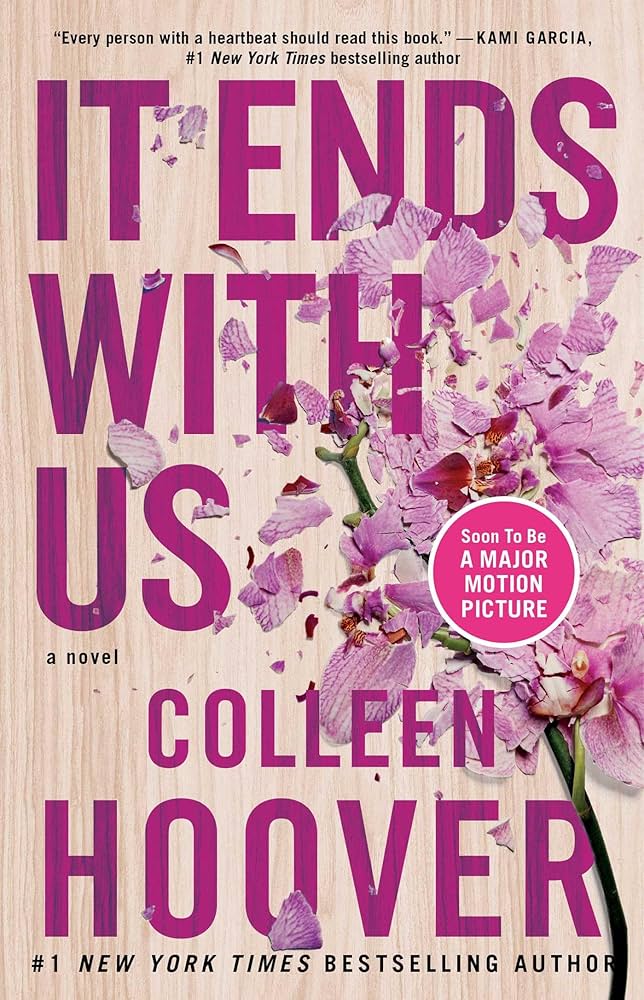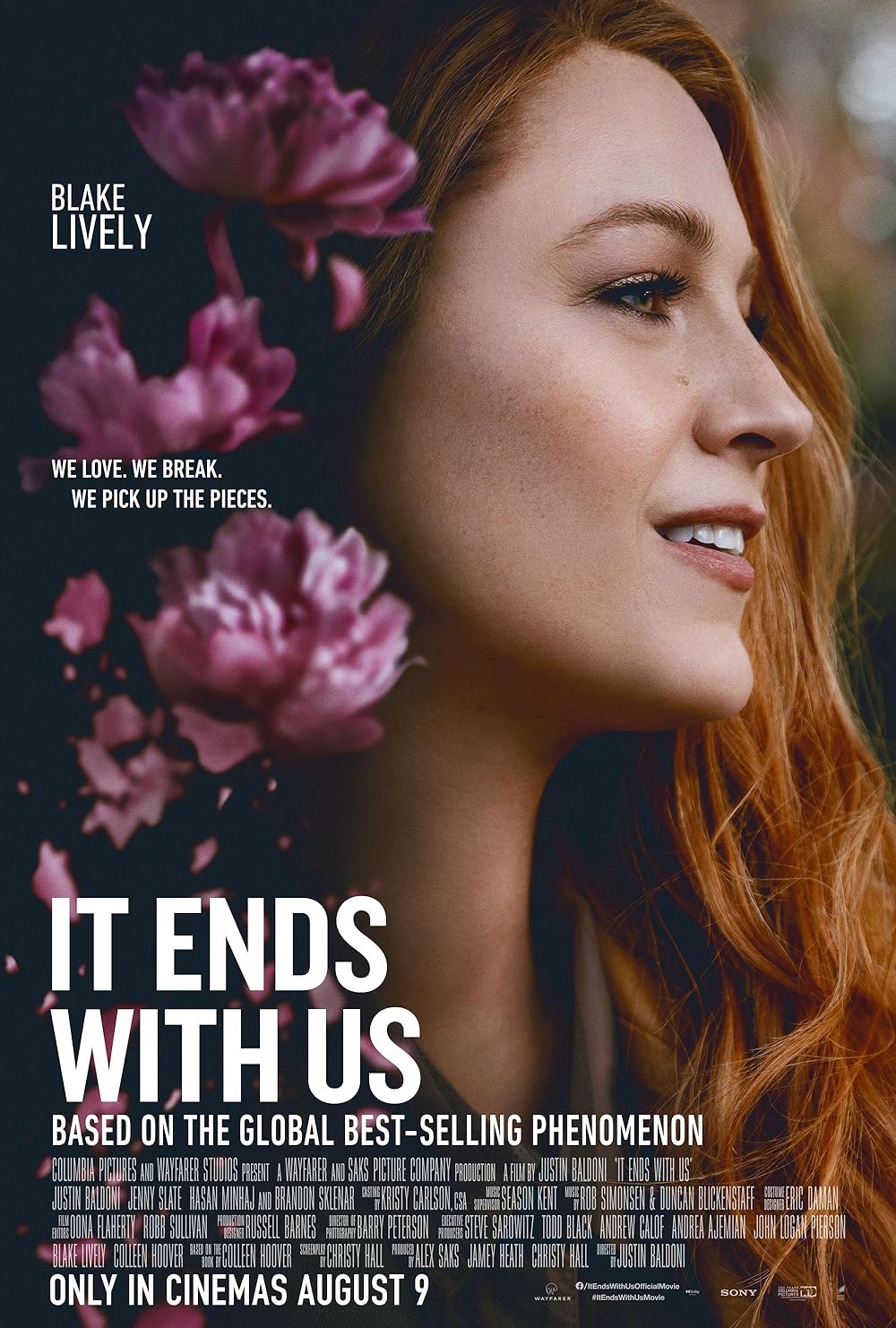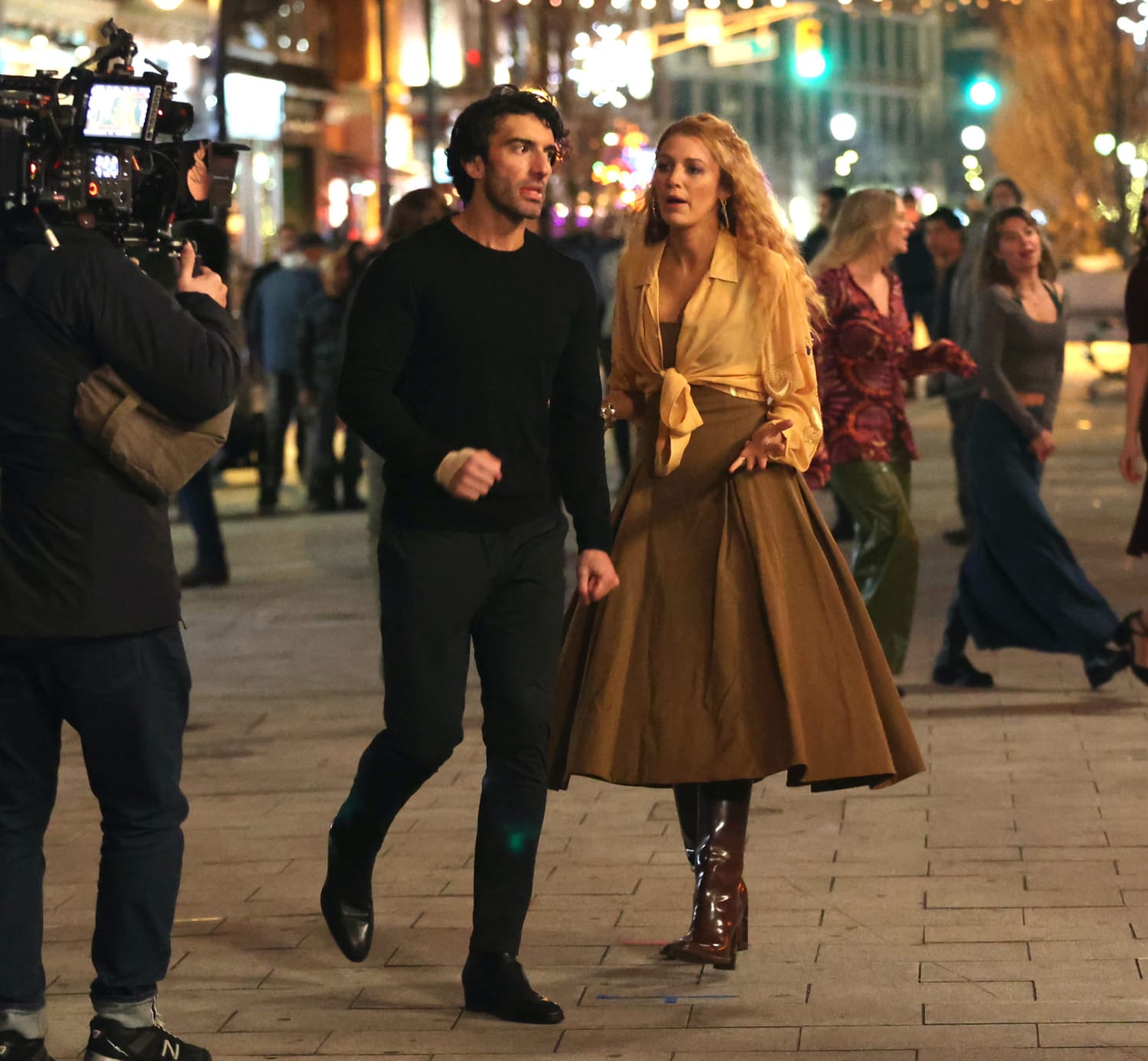‘Grab your friends, wear your florals, head out to see it!‘
Blake Lively’s playful call-to-action for IT Ends With Us sounds like an awfully promising advertisement for a film, doesn’t it? It sounds terribly resonant of the ‘wear pink!’ Barbie trend, like the ultimate chick-flick or rom-com full of girlish whimsy and dreamy desires, a guaranteed night of stifled giggles and soul-bonding with the gals. Except, it’s not.
It Ends With Us is the first film adaption of Colleen Hoover’s prima donna booktok novel, centred around the main character’s struggle with, and subsequent escape from, domestic violence and abusive relationships.
It Ends With Us is the first film adaption of Colleen Hoover’s prima donna booktok novel, centred around the main character’s struggle with, and subsequent escape from, domestic violence and abusive relationships. This book, while catapulting Colleen Hoover to the very top of the bestselling author list, attracted a cult-like teenage fanbase as well as a horde of backlash against the romanticisation of domestic violence (illustrated by CoHo’s controversial plans to publish a themed colouring book), sloppy dialogue, and general literary incompetence.
Grossing 100 million in box office revenues, the film It Ends With Us has attracted a lot of fanfare, not merely from the book’s young female fanbase, but also from the rather tactless and tone-deaf marketing campaigns. It seems that the film’s management have conveniently forgotten that their film is not, in fact, the sequel to Barbie, where flashy, fashionable clothes and female empowerment are all the trend, but is a rather heavy film chock-full of sensitive themes, as it essentially revolves around a woman, Lily Blossom Bloom (yes, that is her name) navigating her way out of spousal violence.
It Ends With Us: A Hallmark-wrapped tragedy
It Ends With Us takes on a very Hallmark-inspired trope, where, the lack of complexity in the nature of abusive relationships is highlighted by the incredibly flat, one-dimensional characters. This is shown in the case of the abuser, a handsome thirty year old with a lucrative career in neurosurgery, Ryle Kincaid (again with the names?), having the same persona as the conventional swashbuckling manly man in nearly every ‘dark romance’ novel or film, suffering from unaddressed trauma and mental issues that engender his problems of control and aggression.
The entire sphere of turning a domestic abuse issue into a poorly portrayed love triangle also doesn’t really sit quite right. Additionally, It Ends With Us ends with the viewer visualising the future relationship of ‘Adonis‘ Atlas Corrigan, Lily’s high school sweetheart, which rekindled due to the similarities between Lily’s and Atlas’ trauma, because of course, shared PTSD and barely any common interests between two skin-deep protagonists are the perfect foundations of a relationship. The entire “love triangle” trope just goes to show that Lily by herself is incapable of any sort of self reflection or self-recovery, and the only way for her to happy is if she moves on from an abusive relationship and immediately settles for a marginally better one.
The portrayal of the effects of domestic abuse also seems sort of one-sided, with Lily not experiencing any of the emotional trauma a survivor is usually supposed to go through.
The portrayal of the effects of domestic abuse also seems sort of one-sided, with Lily not experiencing any of the emotional trauma a survivor is usually supposed to go through. While her performance in the film is commendable, and shows how seemingly romantic relationships can uncover and lead to progressively worse acts of abuse, by shifting the nature of the scenes from those of romance and flowers and intimacy to further aggression and violence, in the end, It Ends With Us is a truly disappointing amalgamation of clichés and stereotypes. Its superficial treatment of domestic violence is a disservice to survivors who deserve to see their stories portrayed with nuance and authenticity. While It Ends With Us may entertain some, it ultimately fails to resonate on a deeper level.
A toxic love story wrapped in glitter: the press tour and the media
The press tour for It Ends With Us has garnered a lot of attention for Blake Lively and the rest of the cast, most of it negative. From the outset, the Bohemian clothing and flowery loose outfits (the inspiration most likely stemming from Lily Bloom’s career as a florist) are Blake Lively’s most vital takeaways from her own film, remarkably akin to the marketing campaign that involved Margot Robbie sporting pink vestments for every era of the doll legacy throughout the Barbie fuelled hysteria of the summer of 2023. However, for a film about domestic violence, perhaps it isn’t such a great idea to place a bulk of the emphasis on Blake Lively’s wardrobe.
It seems as though the limelight has been deliberately commandeered by one of the most touted couples of Hollywood, Blake Lively and Ryan Reynolds, with some suggesting this is the their attempt at a second ‘Barbenheimer‘, as Ryan Reynolds’ new Deadpool and Wolverine film is releasing at around the same time as his wife’s film adaptation. What the couple doesn’t seem to be aware of, however, is that in case of the the ‘Barbenheimer‘ scenario, Deadpool and Wolverine would more likely be the Barbie, with the sensitive themes and challenging material of It Ends With Us making it the Oppenheimer of the hybrid name.
Certain other press-garnering and commercialisation tactics, such as naming a themed cocktail ‘Ryle you wait‘, after the abuser who pushed Lily down the stairs, attempted to rape her multiple times, and left bite marks in her arm so deep she had to get a tetanus shot, have also led to more than a few raised eyebrows.
Blatant commercialisation also seems to be the name of the game, with Blake Lively unraveling her new hair care line, Blake Brown her beverage company, Betty Buzz, and unabashedly bringing these up in interviews consistently through her press tour, diverting attention that could have been given to discussing various forms of support to domestic abuse survivors.
Most viewers were appalled at her tone-deafness and lack of media training, as they felt she could have handled the topic more carefully, and provided some valuable advice.
In fact, when asked, ‘So if someone understands the themes of this film and comes across you in public and they want to really talk to you, what’s the best way for them to be able to talk to you about this? How would you recommend they go about it?‘, Blake Lively, in typical sarcastic and aloof fashion, responds with ‘Maybe asking for, like, my address, or my phone number. Or, like, location share?! I could just location-share you and then we could…‘. Most viewers were appalled at her tone-deafness and lack of media training, as they felt she could have handled the topic more carefully, and provided some valuable advice.
Others, however, were of a different view, admitting that starring and directing in a film about domestic abuse does not automatically make one a therapist. This argument may have its own merit, yet Lively’s co-director, who played Ryle and is a renowned activist, Justin Baldoni, seems to be much more engaged in the actual issue It Ends With Us is tackling. ‘If a Lily Bloom in real life can sit in this theater, and make a different choice for herself than the one that was made for her, maybe she sees herself on that screen and chooses something different for herself,‘ Baldoni said in a red carpet interview. His company, Wayfarer, had also partnered with No More Foundation in order to provide resources and information about abuse.
Ultimately, It Ends With Us is a cautionary tale on several echelons. The film’s rather superficial treatment of a serious issue is exacerbated by the tone-deaf marketing campaign that prioritised profit and aesthetics over empathy. While the film may have achieved commercial success, it has left a bitter taste due to its lack of depth and the public relations missteps that followed. And with regards to the treatment of themes like domestic abuse, it’s time for Hollywood to tune in, not tune out.
References:
- https://pagesix.com/2024/08/15/entertainment/blake-lively-under-fire-for-garbage-answer-to-serious-question-during-it-ends-with-us-interview/
- https://edition.cnn.com/2024/08/17/entertainment/it-ends-with-us-blake-lively/index.html#:~:text=
- https://www.forbes.com/sites/mollymcpherson/2024/08/12/social-media-hints-at-reasons-behind-it-ends-with-us-cast-rift/
- https://www.nytimes.com/2024/08/16/films/it-ends-with-us-controversy-blake-lively-justin-baldoni.html
- https://www.dailynebraskan.com/culture/review-it-ends-with-us-duology-is-a-tone-deaf-analysis-of-domestic-abuse/article_f2281530-54c5-11ed-bd05-b7f592027b6d.html
- https://www.vox.com/culture/367451/blake-lively-it-ends-with-us-press-tour-controversy








